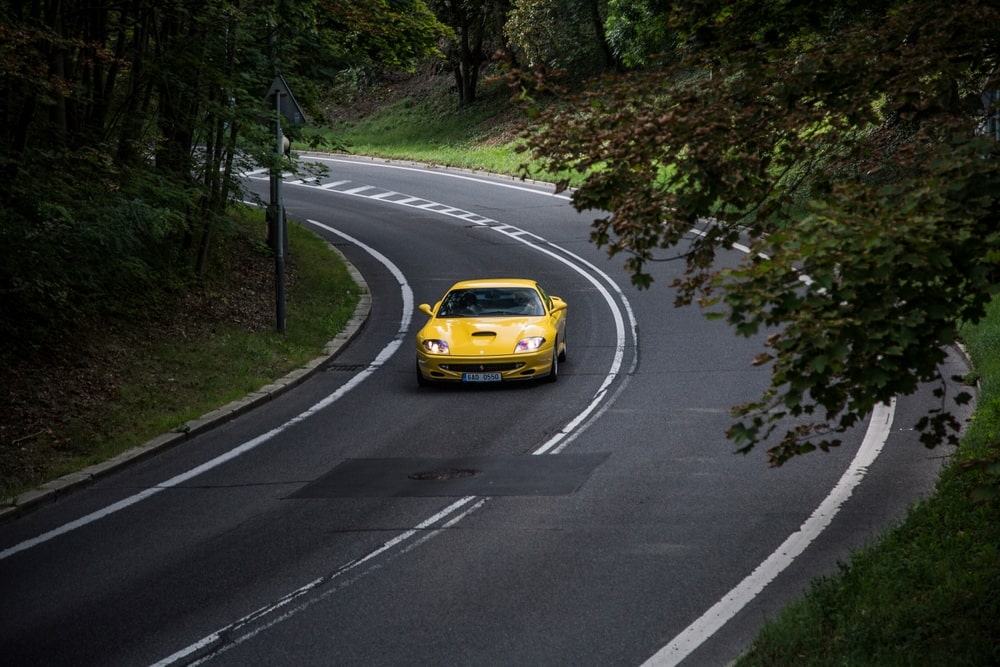Earlier this week, a signature-red 1962 Ferrari 330 LM / 250 GTO became the most expensive Ferrari ever sold at auction when it went under the hammer in New York. The car is considered one of the rarest Ferraris, with only 36 models put into circulation between 1962 and 1964.
Most Expensive Ferrari
The rarity of the Ferrari - along with its early racing record and meticulously documented build and racing history - saw the hammer come down at more than $51 million (around £42 million) after nearly four decades in the hands of a private American owner. The sale price makes it the second most expensive car ever sold, although it failed to make the estimate of $60 million. The car - with chassis number 3765 - is the only GTO Tipo 1962 raced by Scuderia Ferrari, and has an esteemed racing history, having completed a 1,000km race at Germany's fabled Nurburgring ring (finishing second overall and first in its class) and competed in the 1962 24 Hours of Le Mans (it pulled out with engine failure). The car then competed in various races in Italy and Sicily before being exported to the US, where several individuals privately owned it for long periods. The anonymous owner who sold the car earlier this week had possessed the vehicle for 38 years.
Although the price of the Ferrari is astronomical, it falls some way behind the world's most valuable car, which sold last year for $142 million. The 1955 Mercedes-Benz 300 SLR Uhlenhaut Coupe (nicknamed Red, after its red interior) was sold to a private owner in an invite-only auction hosted by Mercedes Benz in 2022. Initially made for the 1965 racing season, the car was never driven in competitions but was ultimately used as a company car by Rudolf Uhlenhaut, the then-head of Mercedes's testing department. Only two models were ever made, and Red's 'sister' car, 'Blue' (again, named after the colour of its interior), belongs to Mercedez-Benz and is on display at the manufacturer's museum.
Collectable Supercar And Sports Car Valuations
The world's most expensive and collectable cars are usually unique in some way or are exceptionally rare, as underlined by the Uhlenhaut Coupe or the 1962 Ferrari. The fewer models produced, the more expensive the car is likely to be. However, other factors also impact sale price: provenance, racing history, ownership, build, modification and restoration history (including quality of the artistry, the dealers or mechanics that carried out the work and the parts used), and so on. How pristine the car is also plays a role - collectable cars need to be stored and maintained fastidiously, with everything from dents, damaged paintwork and crashes (racing or otherwise, depending on the type of car) influencing sale price.
Buying Classic Cars At Auction
Classic cars and sports cars - like many luxury assets - sit at the meeting point between an owner's passion and investment, given they are often appreciating assets that owners find beautiful or exciting and enjoy owning. Very high-end jewellery, art, handbags and watches can fall into the same category.
Get in the Know
Subscribe to our newsletter
Buying a car for $50 million is not for the faint of heart. If an individual purchased the Ferrari, they are likely to be exceptionally wealthy and probably have a fortune of several hundred million dollars or be a billionaire with a diverse asset base - few people start diversifying their wealth with a single purchase of this magnitude in a relatively niche asset class. As well as possibly being a 'passion purchase', the new owner will probably be hoping the car will be an appreciating asset they can sell for a profit in the future.
Despite the probable wealth of the new owner, financing the purchase may have been necessary and made financial sense. It also makes no sense to liquidate diverse investments based on hoping to secure a classic car at auction, only then to lose the bid. The issue here would be a potential lose-lose: the individual would walk away with no car and lock themselves out of the returns of whatever the capital was invested before they liquidated it, potentially also incurring significant tax liabilities at the same time.
Instead, the owner may have worked with a lender to borrow a percentage of the car's value (they will have been required to have some funds available to mitigate the lender's risk and to secure a competitive deal in terms of loan-to-value ratio). They'd then be able to bid up to a certain amount (beyond which they would need to finance themselves), knowing the lender could step in to complete the transaction when they'd won the auction. The car's new owner would then have a predefined period - agreed with the lender - to repay the loan. This may be anything from a few weeks or up to a year.
Supercar Finance
Auctions aside, many wealthy individuals look to finance a supercar purchase. Supercar, sports car and classic car finance isn't about making exotic or luxury cars available to owners who couldn't afford them any other way. Instead, it allows owners to purchase a vehicle that may cost several hundred thousand (or millions of pounds) without depleting personal capital reserves while also spreading the cost of a supercar purchase across several months.
For many high-net-worth individuals, purchasing an exotic car is worth considering whether you're a passionate collector or you simply wish to diversify your assets. Enness can broker supercar finance for auctions or off-the-shelf purchases and can source and negotiate competitive supercar financing for you. Get in touch to find out more about how we can help.
The views and opinions expressed in this piece are those of the author and do not constitute advise or a recommendation.





